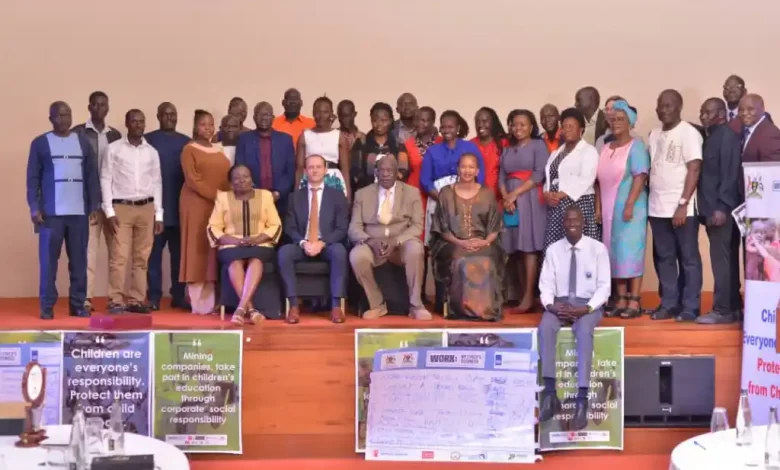Uganda registers 5% decline in child labour-report
Implemented by Save the Children, UNATU, EWAD, Nascent RDO, and Hivos, the programme has helped thousands of vulnerable children gain access to quality education.

The Ugandan government and its development partners have marked a milestone in the battle against child labour, celebrating the success of the “Work No Child’s Business” (WNCB) programme at a national close-out meeting held at Kabira Country Club in Kampala. Launched in 2019, the five-year initiative has been pivotal in curbing child labour, improving access to education, and empowering youth with skills training across the country.
Implemented by Save the Children, UNATU, EWAD, Nascent RDO, and Hivos, the programme has helped thousands of vulnerable children gain access to quality education.
It also provided economic empowerment to youth, particularly in regions where child labour has historically been rampant, such as Karamoja and Busia.
An end-line report highlighted a 5% reduction in child labour among children aged 5-17, dropping from 56% at the programme’s inception to 51% by 2024.
School attendance within the same group increased by 7.3%, with nearly 79% of children now regularly attending school.
Peter Lokeris, Minister for Karamoja Affairs, emphasized the programme’s role in transforming communities, particularly in the mining sector. “The community schools established have not only provided education but also inspired a shift in mindset, giving children a chance at a better future,” he remarked.
Hillary Businge, Assistant Commissioner for Labour Productivity, reinforced the government’s commitment to protecting children from exploitation. “Our labour policies will continue to evolve to ensure that no child is forced into work,” he stated.
However, the report revealed persistent challenges. While 84% of children aged 5-17 in Busia are attending school, only 76% are doing so in Karamoja.
Despite these gaps, the programme recorded a notable improvement in decent employment among young adults aged 18-24, rising from 30% at baseline to 45% in 2024. Additionally, dropout rates among primary school children have decreased from 50% to 24.4%, a 26% reduction over five years.
Cultural norms and poverty remain key drivers of child labour, especially in Karamoja, where 65% of children are still at high risk of exploitation. Yet, Juliet Wajega, WNCB Country Coordinator, remains hopeful:
“We’ve laid the groundwork, but the fight continues. Sustaining these gains and scaling up efforts is crucial.”
As the WNCB programme concludes, stakeholders are rallying to ensure its success becomes a stepping stone towards Uganda’s vision of a child-labour-free society.



